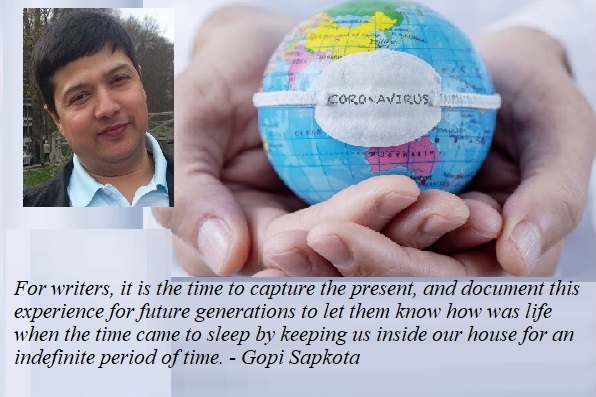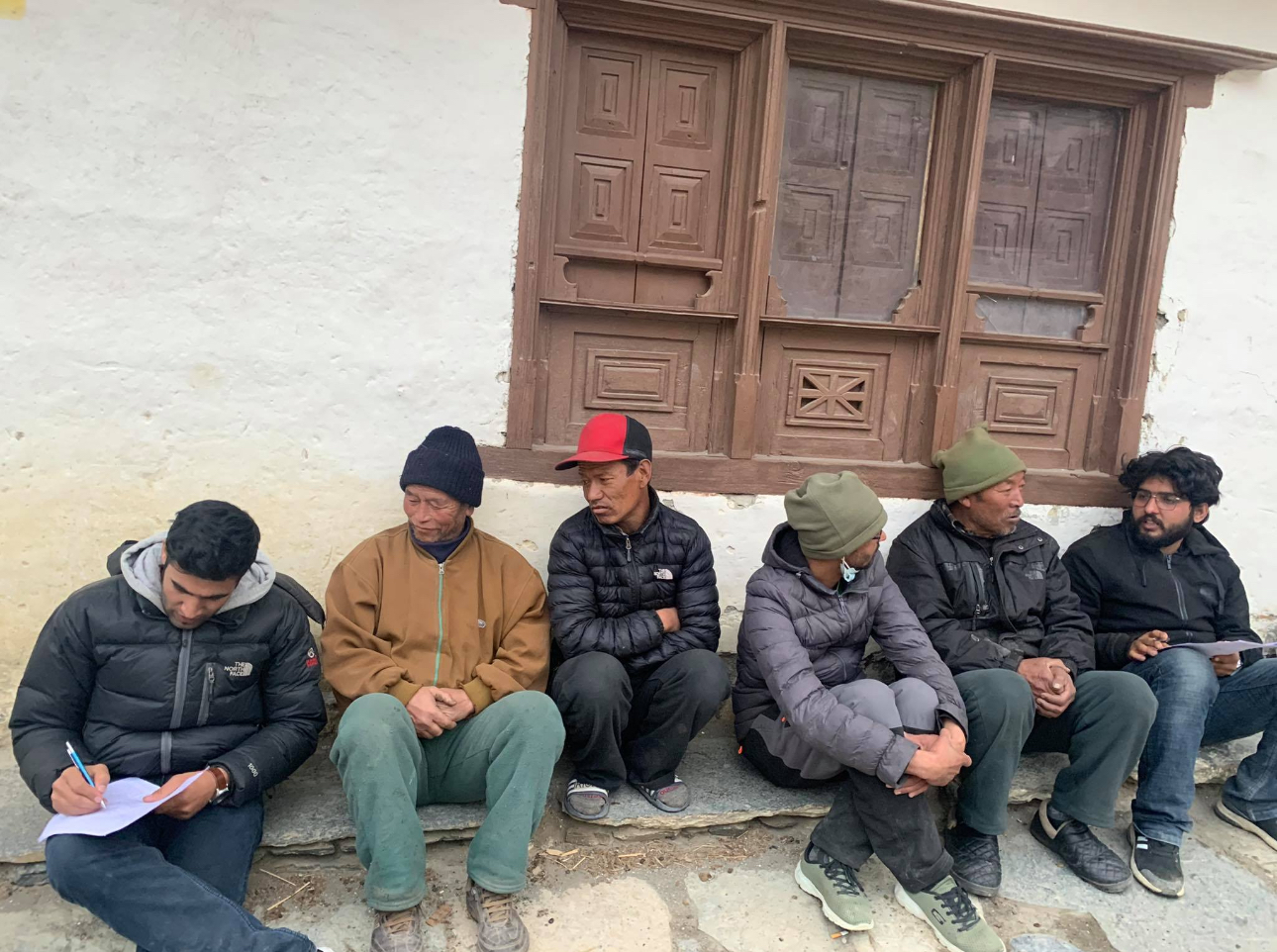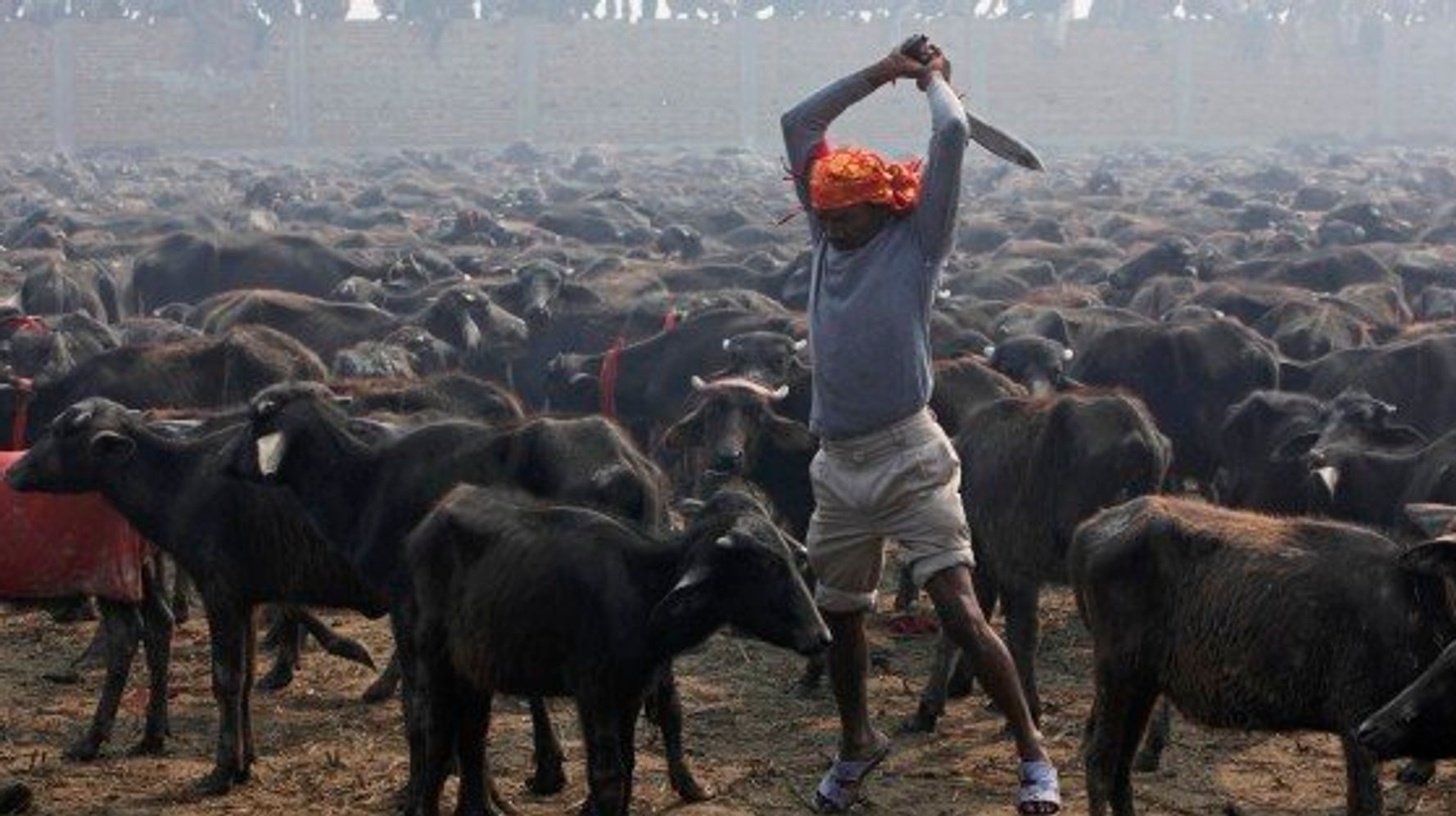Post Pandemic Literature in Nepal

By Gopi Sapkota
A group of enthusiastic students and teachers from eastern Nepal recently took an initiative to hold a discussion on post pandemic literature. I was invited to share my thoughts. The forum provided an opportunity to ponder over several associated factors rather than just talking about what is happening but what would happen in Nepalese writing after the COVID-19 crisis is over. Before I continue any further, I want to sincerely thank Hem Bishwakarma and his team for choosing such a relevant topic.
Before participating in the discussion forum, I researched about the past pandemics and the literatures produced during those times. One of the deadliest pandemics in terms of casualty was the Spanish Flu of 1918, which had claimed over 50 million people worldwide. Before talking about what would be written after the pandemic in Nepal; and meditating on whether this pandemic would influence to the level that the writing would shift its paradigm to a greater extent; it is important to look into how the pandemic in past affected the life and literature of different parts of the world. Likewise, it is also important to look at other socio-economic and cultural issues that the pandemic could affect.
When we look back to the writings of the past in global context, we can see some good number of books written incorporating the theme and plot of pandemics. Katherine Anne Porter’s ‘Pale Horse, Pale Rider’, Albert Camus’s ‘The Plague’ and Gabriel Garcia Marquez’s ‘Love in the Times of Cholera’ covered the time and life at the time of Spanish Flu, plague and cholera respectively.
At the same time, we need to look at what kind of social behaviors would be left to the humanity by this pandemic once it is over, as it has confined the people in their home for more than three months. The gravest among the questions is whether people will have the confidence to go out after the pandemic and do the normal work as they used to do before the pandemic. Whether the fear of infection and from the virus will remain in the mind of people or not; and will that play some role and have any impact in the life in general is another area to think about.
I think this pandemic has generated awareness in terms of how we can conduct formal meetings. The habits of people formed due to the lockdown about organizing team meetings and group discussions via virtual means, I think, will stay the same after this Covid-19 pandemic. Similarly, the handwashing habits will also become the new normal, as it was hardly the case before. People will be less inclined to travel, and will limit their travel to the point when it is absolutely necessary. Increased use of masks and keeping the social distance would be another thing we may expect to see for a foreseeable time after the pandemic.
Time for us to look back
In Nepal’s context, it is also a time for us to look back and see what we wrote after the big incidents in the past. We had people’s war nearly 15 years ago and earthquake about five years before. Although few writings were done incorporating the sufferings caused due to conflicts of so-called Maoist’s People’s War, I believe, that is not sufficient to the extent that the situation had an impact on the social life of people. Still there are some good chances and opportunities for Nepalese writers to pick up the issues from the conflicts and create a history.
We were thinking that we would see some good writing after the earthquake. However, we didn’t see any serious writing about the effect of earthquake except few poems expressing the sentiments to the victims of earthquake. I think the writers have not been able to be serious at digging and exploring the real issues, and translating them into a book of serious literature, rather they are picking up whatever they see at their first glance, and produce their work of art like the fast food, for a quick read in the newspapers.
At this time, we are trying to sketch a perspective on post pandemic literature, mainly to predict on what direction would Nepalese writing take once the COVID-19 is over. Whether the Nepalese writers will write about the sufferings of people after this pandemic leaves the scars to peoples’ psyche, their social and financial loss etc. The pandemic will also have impact on people’s mental health; and that can be a subject for writing as well.
In my opinion, the mainstream writing will remain the same and will not be affected by the pandemic. There may be slight decrease in the number of books published as the pandemic will have some financial impact in the publication industry as well. The pandemic will provide an opportunity for the writers, however, to write about the experiences and its impact on people’s life. I hope some good books will come after the pandemics on the theme of COVID-19, rather than few short memoirs and poems.
Before summing up, I would like to mention that we are the generation that lived at the time of novel corona virus disease that brought the world, its scientific and technological feat at its knee and left the entire civilization vulnerable like never before. We witnessed and experienced it; and these are the rare moments of life. For writers, it is the time to capture the present, and document this experience for future generations to let them know how was life when the time came to sleep by keeping us inside our house for an indefinite period of time.
Sapkota is a Poet and Playwright.


















Facebook Comments